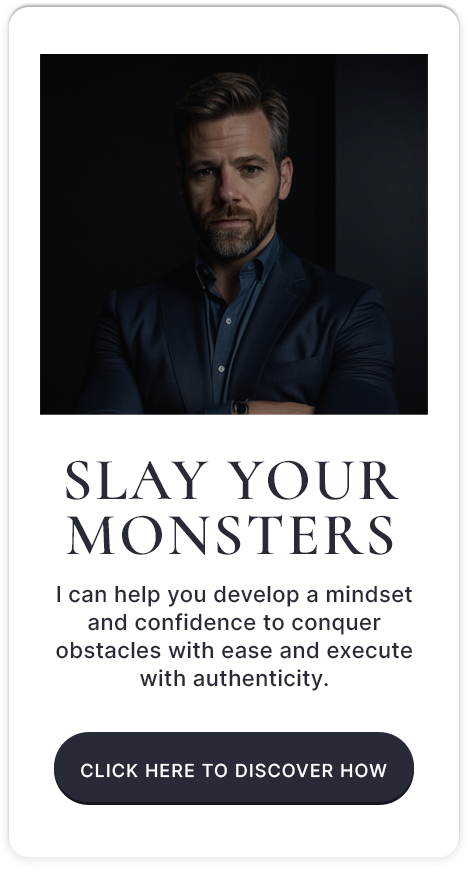If most people spoke to their friends the way they speak to themselves, they’d have no friends left.
Yet day after day, we allow our inner critic to narrate our lives—relentlessly, mercilessly, and often unconsciously.
As a confidence coach, I see this every week: brilliant, capable professionals who are constantly fighting a voice that says, “You’re not enough.” It’s the silent saboteur behind stalled careers, unfulfilled potential, and low self-worth.
So, let’s break this down—not with clichés about “thinking positive,” but with real strategies that rewire how you see yourself.
Recognize: You’re Not the Voice in Your Head
That voice that whispers, “You’re going to screw this up”?
It’s not truth. It’s conditioning.
Negative self-talk often originates from protective patterns developed early in life—parents, teachers, or experiences that taught us we’re safer staying small. But here’s the problem: what once protected you now imprisons you.
The first step is detachment.
Instead of being the voice, become aware of it.
Say, “That’s my fear talking,” or, “That’s old programming, not me.”
Once you label it, it loses its power.
Audit Your Internal Language
You wouldn’t leave your bank account unmonitored—so why do you let your mental account overdraw every day?
Start paying attention to your internal dialogue.
Notice phrases like:
-
“I always mess this up.”
-
“I’m not that type of person.”
-
“They’ll probably think I’m stupid.”
These aren’t reflections—they’re scripts.
Rewrite them.
Replace “I can’t” with “I’m learning.”
Replace “I always fail” with “I’m improving.”
Language doesn’t just describe reality—it creates it.
Stop Predicting Failure Before It Happens
One of the most common cognitive distortions I see is catastrophizing—mentally skipping ahead to the worst-case scenario before anything even happens.
You miss the opportunity to win because you assume you’ve already lost.
When you catch yourself imagining failure, force a mental pattern interrupt:
“What if this works out better than I expect?”
It’s a deceptively powerful question.
It doesn’t deny the risk—but it allows for the possibility of success, which your brain needs to visualize before it can pursue it.
Build a Counter-Voice
Confidence isn’t built by silencing your critic—it’s built by training a new voice to speak louder.
When the inner critic says, “You’ll screw this up,” your counter-voice replies, “Maybe. But I’ve handled worse.”
When it says, “You’re not good enough,” it answers, “I’m becoming better every day.”
You’re not chasing perfection—you’re building resilience.
Confidence is self-trust in motion.
Turn Proof Into Belief
Negative self-talk thrives on emotional memory, not logic. You can’t argue your way out of it—you have to prove it wrong through action.
Start small.
Show up to the gym. Speak up in that meeting. Say “yes” to an opportunity before you feel ready.
Each act is evidence that your old narrative is false. And evidence changes belief faster than affirmation ever will.
Remember: Self-Respect Comes from Self-Discipline
You don’t gain confidence from compliments—you gain it from consistency.
Every time you follow through on what you said you’d do, your brain takes note: I can trust myself.
That trust is the foundation of confidence.
It’s not arrogance or delusion—it’s self-respect earned through repeated action.
The Mind Will Always Generate Noise.
The question is: which frequency will you tune into?
You can spend your life listening to the voice that keeps you small, or you can cultivate the one that calls you forward.
Confidence isn’t about never hearing the critic.
It’s about knowing which voice deserves the final word.


